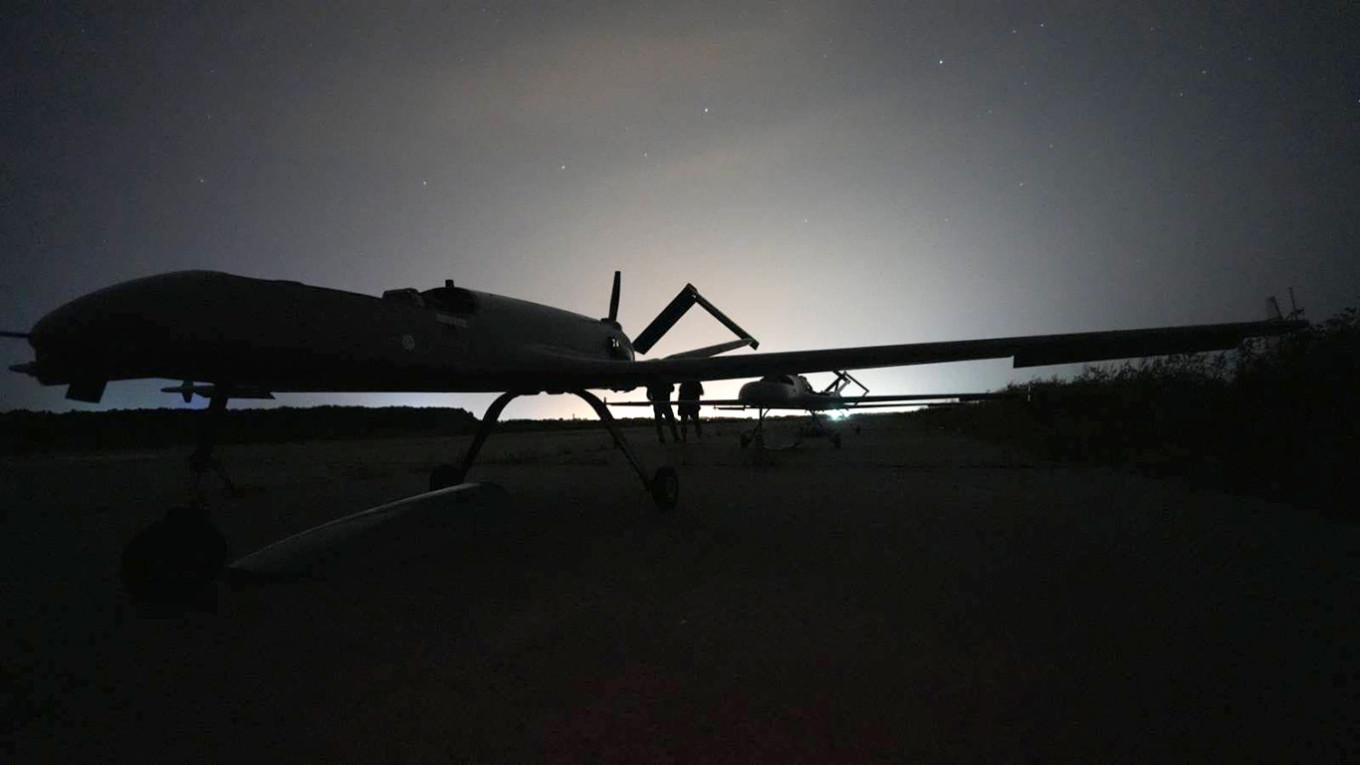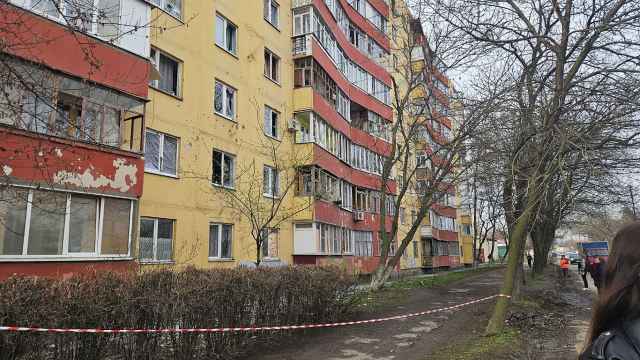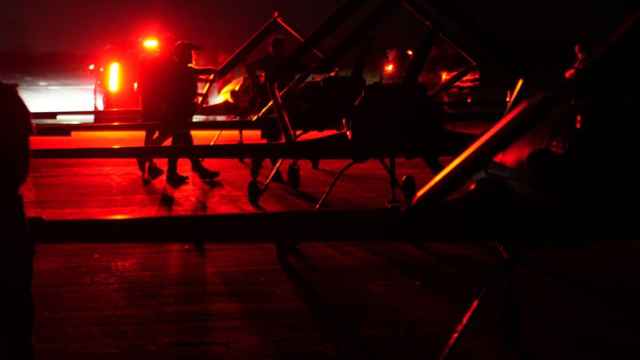Ukrainian drones have targeted northern Russia’s Murmansk region at least twice over the past month.
Taking place around 1,700 kilometers (1,056 miles) from Russia’s border with Ukraine, the drone attacks mark the deepest strikes inside Russian territory since Moscow launched its full-scale invasion of its neighbor two and a half years ago.
The first reported strike in the region on Aug. 21 forced civil aviation authorities to restrict flights at airports in the regional capital, Murmansk, and the town of Apatity. Unconfirmed eyewitness accounts said drones were spotted near the closed military settlement of Vysoky during that attack.
And on Wednesday, Murmansk region Governor Andrei Chibis said in a video statement that the region was once again “under attack from enemy drones.” Similar to the first drone incident, flights to and from local airports were temporarily restricted.
While authorities have only confirmed two attempted drone attacks on Murmansk so far, Violetta Grudina, an exiled former Navalny coordinator, said locals have reported seeing and hearing drones on multiple days over the past month.
Given the vast distance that drones would need to travel to reach a region as far away from Ukraine as Murmansk, pro-Kremlin media have started to claim that the drones had flown from nearby Norway or Finland.
However, experts told The Moscow Times they doubt that the Nordic NATO members are being used as launching grounds for Ukrainian drone attacks on northern Russia.
“Finnish authorities not only wouldn’t approve of such an attack, but would try to disrupt it by all means possible,” Israel-based military expert David Sharp said, noting that such a move could risk bringing the Nordic country into direct conflict with Russia.
“Finland doesn’t want to get involved in this war. Therefore, organizing a drone attack from Finnish territory is theoretically possible, but only without the involvement of the Finnish authorities,” Sharp added.
Past drone attacks deep inside Russian territory, like those against industrial sites in the republic of Tatarstan or an oil refinery in St. Petersburg, demonstrated that Ukrainian drones are capable of pulling off long-distance flights, Sharp said — “So why wouldn’t they do it again?”
Alexey Alshanskiy of the Conflict Intelligence Team (CIT), an independent organization that conducts open-source investigations of the Russian military, agreed with Sharp’s assessment.
“The use of NATO territory would inevitably lead to an escalation between Russia and the [NATO] alliance,” Alshanskiy told The Moscow Times. “NATO countries are actively trying to avoid this.”
He noted that pro-Kremlin media have repeatedly claimed since the start of the war that NATO member countries are being used for drone attacks. “Previously, the Baltic states were accused of such actions... [but] there was no evidence provided.”
Alshanskiy said there is little reason to doubt that Ukraine could launch long-distance drone flights from its own territory.
“When it comes to long-range drone flights, it’s important to understand that light aircraft modified for unmanned control are often used for them,” he said.
In his view, the most notable thing about the deep strikes into Russian territory like those in the Murmansk region is how Ukrainian drones manage to travel so far without being detected by Russian air defense systems.
“However, it is also worth remembering that air defenses are distributed unevenly across Russia and are currently being redeployed to protect sites that Russian authorities consider of the highest importance,” Alshanskiy said.
A Message from The Moscow Times:
Dear readers,
We are facing unprecedented challenges. Russia's Prosecutor General's Office has designated The Moscow Times as an "undesirable" organization, criminalizing our work and putting our staff at risk of prosecution. This follows our earlier unjust labeling as a "foreign agent."
These actions are direct attempts to silence independent journalism in Russia. The authorities claim our work "discredits the decisions of the Russian leadership." We see things differently: we strive to provide accurate, unbiased reporting on Russia.
We, the journalists of The Moscow Times, refuse to be silenced. But to continue our work, we need your help.
Your support, no matter how small, makes a world of difference. If you can, please support us monthly starting from just $2. It's quick to set up, and every contribution makes a significant impact.
By supporting The Moscow Times, you're defending open, independent journalism in the face of repression. Thank you for standing with us.
Remind me later.








